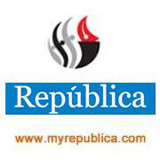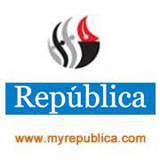Saving 3 Million Babies is Easier Than You Think
“I don’t mean theoretically preventable under ideal but unrealistic circumstances. I mean preventable with relatively simple, relatively inexpensive interventions.”
Melinda Gates Works to Curb Newborn Deaths
Inexpensive, Low-Tech Solutions Urged, Such as Breast-Feeding, ‘Kangaroo Care’.
Health Minister approves production of newborn antiseptic gel by Nigerian company
The Minister of Health, Onyebuchi Chukwu, on Tuesday in Bauchi granted regulatory approval for the production of newborn cord care antiseptic gel, Chlorhexidine Digluconate 7.1%, by a Nigerian pharmaceutical company, Drugfield Pharmaceuticals Ltd.
Nepal awarded USAID pioneer prize
With use of low-cost antiseptic, chlorhexidine, the country has lowered the risk of death in newborn babies by 23 percent.
Nepal awarded for saving newborns
“The scale-up plan, currently being implemented, aims to make chlorhexidine available in over three-fourths of Nepal’s districts by the end of 2015.”
He’ll live to see another day – but one million babies do not, Save The Children study says
Save the Children wants developing countries to increase health expenditure to the World Health Organisation minimum of £40 per person and remove all fees for maternity and newborn care.
Nepal: Birthing antiseptic wins USAID innovation prize
The prize recognizes excellence in the use of science, technology and innovation to solve developmental challenges.
7 wins for global child health in 2013
This year’s most notable achievements in the field of child health.
JSI’s TSHIP project continues groundbreaking CHX and misoprostol work in Nigeria
On December 5, 2013, the governor of Nigeria’s Bauchi State, Isa Yuguda, personally launched the state’s first misoprostol and chlorhexidine (CHX) program.
Nepal: Making a difference
Since its inception in 1988, the FCHV programme has proven to be a key factor in Nepal’s dramatic reduction in maternal and child mortality.









